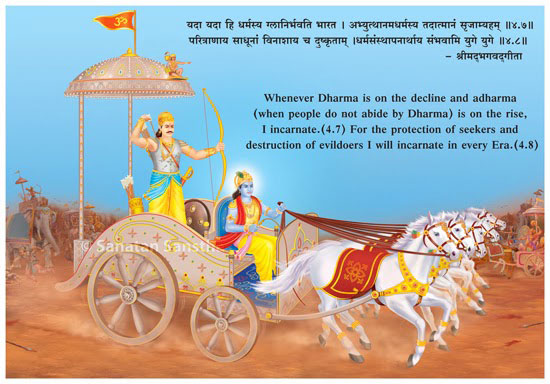Editorial

Whether to tolerate WhatsApp’s bullying or use alternative social media – this has become a matter of confusion. According to WhatsApp’s new policies, it will now provide the personal information of its users to organisations affiliated with it.
Facebook has already made sure that there will be no competitors left. Facebook bought the WhatsApp establishment a few years ago. Even later, it bought many well-known messaging Apps. This is why, personal information of WhatsApp users will be shared not only with Facebook but also with all the big and small companies that are associated with them. It has come to light that Facebook has so far sold personal information of its users to political parties, e-commerce establishments.
WhatsApp has over 40 crore users in India alone. Our population is about 120 crores; there is hardly any one who do not know about WhatsApp. School-lessons for children come on WhatsApp, interactions of their parents’ with work places can be done on WhatsApp groups, even senior citizens’ chats have now become ‘virtual’. These users, who interact with their friends and relatives about many events in their personal lives including financial transactions and business contracts, may not even be aware of this yet.
From 4th January to 8th February, WhatsApp will send notifications to get the new terms accepted. Those who do not accept these terms will have their WhatsApp accounts closed down. This is blatant bullying. You are asked permission by various ‘Apps’ to access variety of information stored on your mobile when you download these ‘Apps’. You cannot use that ‘App’ without giving permission. So long as contact numbers, information about action carried out on that ‘App’ was being stored, it was fine. WhatsApp will now keep track of financial transactions on your mobile, as well as information on various Online purchases.
Who gave WhatsApp the right to collect so much personal information ? Who will guard the privacy of personal and business information of citizens ?
Confidentiality needs to be guaranteed
The current lifestyle emphasizes on making all transactions Online. The Government is also ‘digitising’ many areas. Giving access to all transactions in the hands of US companies, when these transactions are stored in the mobiles, tantamounts to nullifying all Government efforts. Earlier, when Online registration for Aadhaar card was done, there was a lot of discussion whether personal information was being compromised. At the time, the Government had to submit an affidavit to the Court stating, ‘Citizens’ personal information will remain confidential and secure’. Now, when a US company is trying to encroach upon the personal life and exploit the users, who will provide security against such a grave breach ?
We are very advanced in the field of information and technology. Despite this, it is our failure that the original ‘server’ of our transactions and correspondence of Indian companies is not retained in India. On the one hand, we call our country ‘self-reliant India’ and on the other, we become helpless in the face of such bullying by companies such as ‘WhatsApp’; this is inconsistent. These companies have come to do business in India. They are merchants and we are their customers. Given these current terms and conditions, these companies are now in the process of becoming our owners.
In India, a red carpet was rolled out for these companies under the name of globalisation and liberalisation. They were extended many facilities to ensure smooth business. This is why the Government is expected to at least ask the concerned people about such oppressive conditions. Why does the Government not tell these companies that they don’t have the freedom to use personal information of our citizens ? Considering that this is a violation of our fundamental rights, instead of blindly ‘agreeing’ to the notification of such an App, the issue should be raised in the consumer Courts. Those who are unable to protest the act of WhatsApp should at least teach WhatsApp a lesson by using alternative Apps.
What is the current market trend ? Initially, the companies shower facilities on customers. Many services are given free and are user friendly. Once society is enamoured by them, service charges are gradually levied. Reliance Jio is one example of this. All Jio’s facilities were free for at least a year. In those days, Internet was used on mobiles for hours free-of-charge. Later, however, Jio began to increase charges of mobiles and internet services. Users now cannot live without the internet nor complain about the increase in service charges. A joke about this went viral. There is a sign board outside a park which says, ‘Admission is free’. Everyone reads the sign and a crowd gathers in the park. When they approach the exit, there is another sign board which says, ‘You have to pay to get out of here. Only the entrance was free’.
The same is true in the context of this virtual world. We are ensnared. Even so, we have not lost the freedom to oppose this rule in a legitimate way. We can certainly lodge a protest against this bullying at our own level.

 Exit Polls once again fail to tap the pulse of voters
Exit Polls once again fail to tap the pulse of voters Elderly Engineer Duped of ₹10 Crores in a 19-Day ‘Digital Arrest’ Scam
Elderly Engineer Duped of ₹10 Crores in a 19-Day ‘Digital Arrest’ Scam For the Ukraine war, the US is responsible not Russia
For the Ukraine war, the US is responsible not Russia Children under the age of 16 banned from using social media in Australia
Children under the age of 16 banned from using social media in Australia PM Shahbaz Sharif congratulates Trump on ‘X’ when ‘X’ is banned in Pakistan !
PM Shahbaz Sharif congratulates Trump on ‘X’ when ‘X’ is banned in Pakistan ! Muslims staging a scene to show Hindus as fanatics outside Tata Hospital
Muslims staging a scene to show Hindus as fanatics outside Tata Hospital